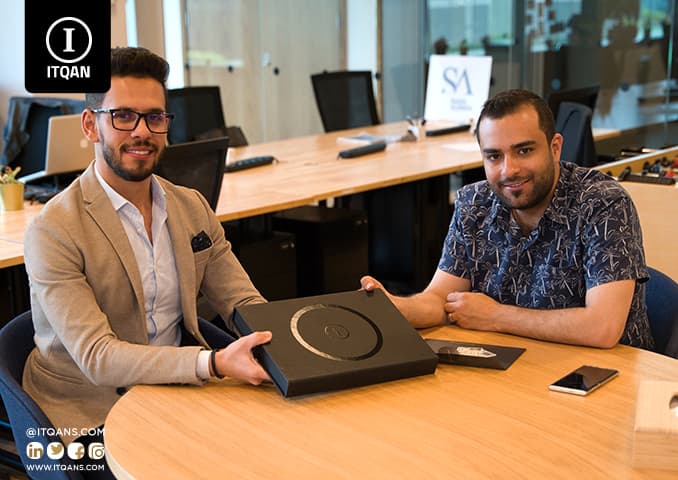Company Registration Procedures in Dubai Dubai is one of the most prominent global destinations for entrepreneurs and investors looking to establish their companies in a dynamic and innovative environment. Dubai offers a wide range of facilities and services that make the company registration process smooth and fast compared to many other cities around the world. Starting any business in Dubai requires following a series of procedures that aim to ensure compliance with local laws and regulations, as well as providing a safe and efficient business environment for investors.
The process of registering a company in Dubai begins with determining the type of business activity desired and determining the legal form of the company, whether it is a limited liability company, a branch of a foreign company, a partnership, etc. After that, a trade name must be reserved that complies with local laws and does not conflict with other registered names. It also requires obtaining the necessary approvals from the competent authorities based on the type of business activity.
It is also important to choose the right location for the company, company registration procedures in Dubai as Dubai offers a range of free zones that provide investors with many benefits such as tax exemptions and 100% company ownership. These areas include areas such as Jebel Ali, Dubai South, Dubai Internet City, and other options that meet the needs of different sectors.
Once the initial steps are completed, the necessary documents must be submitted to the relevant authorities, which usually include a copy of the passport, a copy of the previous trade license (if applicable), as well as details of the partners and the management structure of the company. After the documents are reviewed and approved, the trade license is issued, allowing the company to start its operations in Dubai.

جدول المحتوى
ToggleDocuments required for company registration in Dubai
Establishing a company in Dubai is one of the most important global business destinations, as it provides a flexible and attractive economic environment for investors from all over the world. The process of registering a company in Dubai is simple and clear, although it requires following a set of legal and administrative steps and procedures. One of the most important of these procedures is submitting the necessary documents that ensure compliance with local laws and enhance the company’s transparency and readiness to launch in the UAE market. The documents required to register a company vary depending on the type of company and the chosen location, whether it is within the free zones or on the mainland. Here is a list of the documents required to establish a company in Dubai :
- Copy of Passport: A clear copy of the passport of the founders and partners of the company must be submitted.
- Copy of residence visa (if the founder is a resident of the UAE): If the founder or partners are residents of the UAE, a copy of the residence visa and work permit must be submitted.
- No Objection Certificate: If the founder or one of the partners is working in another company in the UAE, they must obtain a No Objection Certificate from the current employer.
- Articles of Association: The company must prepare and submit an Articles of Association that includes the company structure, names of partners, ownership percentages, and nature of business activity.
- Business Plan: Some business registrations may require the submission of a business plan that outlines the company’s goals, strategies, and the type of business to be undertaken.
- Proof of address: The company must provide a document proving the place of business, either through a lease or ownership of the office.
- Special Approvals (if required): Depending on the type of business, additional approvals may be required from certain regulatory bodies such as the Telecommunications Regulatory Authority or the Department of Health.
- Company Registration Application: The company registration application form must be filled out and submitted to the relevant authorities.
By submitting these documents, establishing a company in Dubai, the company can proceed with the registration process and complete the legal procedures required to start its activity in Dubai.

Types of companies that can be registered in Dubai
Dubai is one of the world’s leading business hubs, providing a business-friendly environment for investment thanks to its advanced infrastructure and robust legal framework. Dubai offers a variety of types of companies that can be registered, allowing investors to choose the legal structure that best suits their business needs. Whether you are planning to set up a small business or a branch of an international company, Dubai offers a wide range of options that suit different sectors and economic activities. Understanding the different types of companies that can be registered in Dubai is essential to ensure compliance with local laws and to make the most of the benefits the city has to offer. Types of companies that can be registered in Dubai:
- Limited Liability Company (LLC): The LLC is the most common type of company in Dubai, especially on the mainland. This allows foreign investors to own 100% of the company in some sectors, while in others it requires a local partner to own 51% of the shares. LLCs are characterised by their flexible organisational structure and the ability to undertake a wide range of business activities.
- Sole Proprietorship: This type of company is wholly owned by one person, who is solely responsible for all the obligations of the company. Foreign investors can establish a sole proprietorship company in Dubai, but they must appoint a local service agent to manage the company if it is registered on the mainland.
- Branch of a foreign company: International companies can open branches in Dubai to operate within the UAE. This type of company allows the parent company to maintain full ownership of the branch without the need for a local partner. However, the branch is not considered an independent legal entity but rather a part of the parent company.
- Free Zone Company: Companies registered in free zones enjoy many benefits, such as tax exemption and 100% foreign ownership. These companies are only allowed to operate within the free zones unless they obtain a special license to deal within the local market.
- Public Shareholding Company: This type of company can offer its shares to the public and is owned by a group of shareholders. The capital must be large and these companies are subject to the supervision of the Emirates Securities and Commodities Authority.
- Civil Company: Civil companies are used for professional activities such as legal, engineering and medical consultancy. Foreign partners can establish this type of company but a local service agent must be appointed if the company operates outside the free zones.
Choosing the right type of company depends on your business goals and the activity you intend to practice, as each type of company has advantages and restrictions that differ according to the sector and location.
Learn about company registration procedures in Dubai
The process of registering a company in Dubai is one of the essential steps that ensures investors launch their projects in a developed and vibrant economic environment. Although this process may seem complicated at first glance due to the variety of procedures and requirements, Dubai provides many facilities to make these procedures smooth and efficient. With clear guidelines and services available from government agencies and free zones, investors can benefit from an advanced infrastructure and a supportive legal system that enhances the success of their businesses.
Working with specialized companies such as Itqan is one of the crucial factors that contribute to simplifying and facilitating the company registration process. Itqan provides comprehensive consulting services that include providing legal advice, preparing the required documents, and providing ongoing support to ensure that all steps go smoothly. These specialized companies have extensive experience in dealing with the administrative and legislative system in Dubai, which saves investors time and effort and helps avoid any delays that may occur due to not knowing some of the details or procedures required.
After completing all the steps, from determining the business activity, reserving the trade name, submitting the documents, and obtaining the necessary approvals, the company can start operating in Dubai. With this, Dubai has achieved one of its main goals in attracting foreign investment and strengthening its position as a global hub for business and innovation.
In conclusion, accurate and integrated procedures play a major role in achieving the success of any investment project in Dubai. By working with partners like Itqan, investors can get the necessary support to overcome challenges and move forward on their journey to success in one of the most important commercial cities in the world.
Frequently Asked Questions about Company Registration Procedures in Dubai
What types of companies can be registered in Dubai?
Several types of companies can be registered in Dubai, including limited liability companies (LLCs), foreign branches, freehold companies, and civil and professional companies.
What documents are required to register a company in Dubai?
Documents vary depending on the type of company, but typically include a copy of your passport, a copy of your residency (if the founder is a UAE resident), the articles of association, and a business plan.
How long does it take to register a company in Dubai?
The company registration process usually takes from one to several weeks, depending on the type of company and the required approval from government agencies.
Can foreigners fully own a company in Dubai?
Yes, foreigners can own 100% of companies in many of Dubai’s free zones. For companies outside the free zones (mainland), a local partner is required for a certain percentage, except in some cases that allow full ownership.
How much does it cost to register a company in Dubai?
Costs vary depending on the type of company and location, but include government fees, trade license fees, and rental costs in free zones or on the mainland.
What are the advantages of free zones in Dubai?
Dubai’s free zones offer many benefits such as tax exemption, full foreign ownership, and ease of repatriation of profits.
















